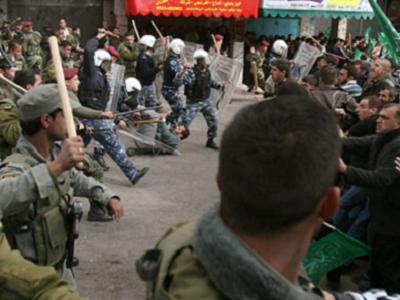
By Somdeep Sen
Already burdened by a crippling political and economic blockade, Hamas and its domain of influence, namely the Gaza Strip, are reeling under the pressure of yet another fit of border closure initiated by Egypt. Having lost a partner in Cairo, left on the margins of (albeit unsuccessful) peace talks and with a population increasing discontented by the Islamic Resistance’s management of Gaza, a ‘tall’ to-do list has emerged for Hamas today.
#1: Call for ‘Permanent’ Partners:
The perennial presence of Palestine in Arab and Muslim consciousness is obvious for many. It was for this reason that the Hamas leadership in exile was able to retreat from Damascus (and the realm Syrian/Iranian influence) and still find resonance among the political elite in Cairo, Ankara and Doha. Nevertheless, what the Palestinian cause in general and Hamas in particular still lacks, are ‘permanent’ partners. So far foreign partners have been sought on the basis of changing political tides. For example, Hamas was able to establish a partnership with Cairo only because the Islamists rose to the helm of Egyptian politics. Similar claim could be made about Ankara. And for the case of Doha, Palestine could be seen as simply a ‘big-ticket’ issue fitting into Qatar’s regional aspirations. The problem of doing this is that, as before, the Palestinian cause remains beholden to the political trends in other countries. So, Morsi’s fall meant the loss of Cairo, Gezi park protests left Erdogan unsure and a new leadership in Doha meant Palestine was on the back burner. It is for this reason that the need has now emerged for Hamas to find partners that are able to promise a permanent and perennial relationship, weather any inclement political tides and remain committed to, above all, Palestine and Palestinians.
#2: Trouble at Home:
With the Gaza Strip’s citizens suffering the most under the current crisis, Hamas today stands on shaky ground. Gone are the days leading up to and following the 2006 Palestinian Legislative Council elections when Hamas seemed to be on an all-time legitimacy high. Built on a history of socioeconomic welfare services and ardent military engagements with Israel, it seemed like Hamas could do no wrong. But on the back a Fatah-led coup attempt in 2007, a different Hamas has emerged. Woefully nervous of any possible challenge to its authority, the Islamic Resistance has silenced any semblance of opposition within the Gaza Strip. Other political factions asides, Gazan commoners are suffering the wrath of an autocratic gag order that has often brutal implemented in a brutal manner by Hamas’ security forces. This has given rise to both frustrated and deeply angered citizens. There are inklings of a Gaza-based Tamarod movement hoping to mirror the success of its Egyptian counterpart. Moreover, with the Palestinian Islamic Jihad positioning itself as the alternative to Hamas in Gaza, a (possibly volatile) political environment may be emerging. Flashpoints of anti-Hamas sentiments have most recently manifested on September 18th, in the form of clashes between foreign-bound Palestinian students and Hamas forces on the Rafah border. Additionally, frequent gun battles have been reported over the summer between Islamic Jihad and Hamas in the former’s stronghold of Shejaiyya. It seems that Hamas has at least recognized the challenge posed by Islamic Jihad as it reportedly signed an agreement with the group. That said, Hamas still needs to appease Gazans. If left untreated, they can prove to be the group’s Achilles Heal.
#3: Brothers in Arms:
Finally, despite Fatah’s efforts aimed at undermining Hamas’ bid to head the Palestinian Authority, it is time for reconciliation. While differences between both groups are irreconcilable in the short-term, they remain mandated to the Palestinian people and the Palestinian cause. Peace is meaningless without unity. Moreover only an accumulation of both groups’ resources can ensure respite to the socioeconomic challenges faced by Palestinians in general and Gazans in particular.
– Somdeep Sen is a PhD Fellow at the University of Copenhagen. He contributed this article to PalestineChronicle.com.




